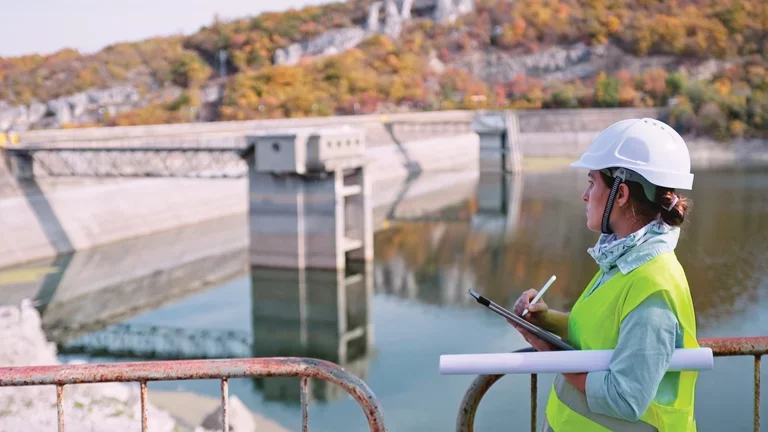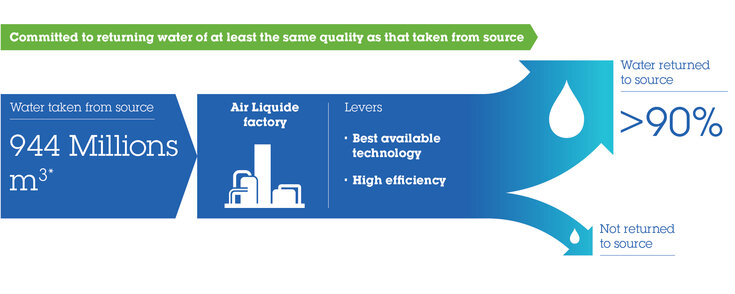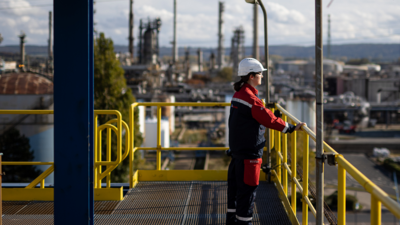It is estimated that, by 2050, 60% of the world’s population, around 6 billion people, will be living in water-stressed areas and experiencing water shortages. Air Liquide is committed to improving its water management wherever we use water in the Group’s processes for two essential purposes: to produce steam for customers and for cooling equipment. The challenge for the Group is to achieve no negative impacts for the environment, local communities, or its industrial processes.
The Group has identified 76 priority sites where we will accelerate the implementation of our water management plan by 2025. These are areas of high water consumption and are located in areas projected to be in high water stress in the future. We will integrate quantitative and qualitative criteria to limit the amount of water consumed and preserve its quality. To achieve this, Air Liquide is working together with local communities and customers, who are all stakeholders in our water management. Air Liquide is going beyond local regulations and existing processes, by developing standards for wastewater and integrating them into our industrial management system. We are also applying them worldwide to guarantee the quality of discharged water wherever we operate.
The levers for action are known, sustainable and replicable: we will adopt new technologies that limit water consumption, combined with water recycling to create a virtuous circle. For future facilities, the Group will integrate new technologies for improved water management in the early design stage of plants.
2023 >90% of water returned to source
2025 Water management plan implemented for 76 priority sites
Our Commitments
- Establish a water management plan for water-intensive operations in areas of high water stress, aimed at reducing water withdrawal and use risks.
- Define and implement a Group-wide standard for all operations that goes beyond existing local processes and procedures and will guarantee that the quality of discharged water meets or exceeds applicable local criteria.
Water: managing quantity and quality
Cédric Colin
Sustainable Development – Environment Manager




